Contents
The gray float is a mushroom that belongs to the Amanitaceae family. The fruiting body has another name: fly agaric vaginal.
What does a gray float look like
Outwardly, the fruiting body looks inconspicuous: it looks like a pale toadstool. Many mushroom pickers bypass it, considering it poisonous.
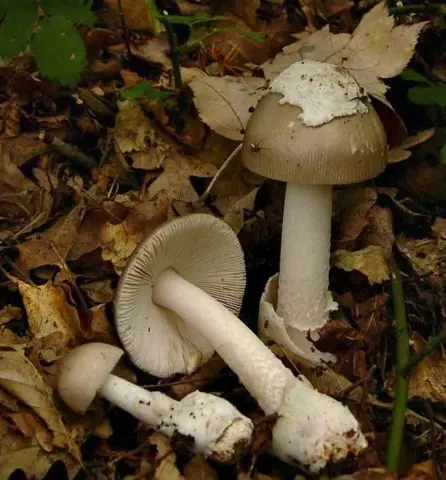
Cap Description
In diameter, it reaches 5-10 cm, has a color of various shades of gray: from light to dark. There are representatives whose color is brown or gives off yellowness. The shape of the cap varies as it grows: in young specimens it is ovate-annulated, then gradually becomes flat-convex with ribbed edges. There may be flaky residue from the common bedspread. Its flesh is white and brittle, so it breaks easily.
The plates on the back of the cap are frequent and wide. In young specimens, they are white, but gradually become yellow in color.
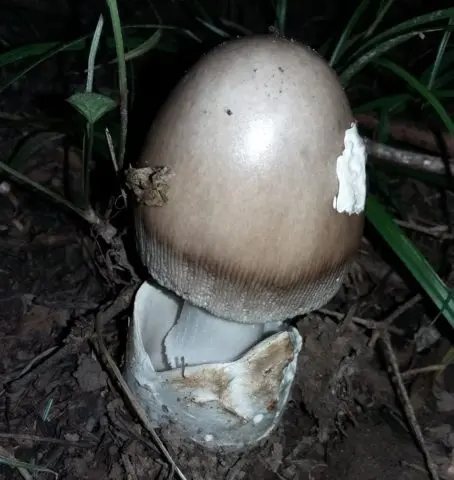
Description of the leg
The leg of the fly agaric vaginal is long: it reaches 12 cm in height and 1,5 cm in width. It is cylindrical in shape, hollow inside, with an expanded base. On examination, it can reveal a flaky coating and spotting, whose shade is lighter than that of the cap.
The vulva is large, yellow-red. A characteristic feature is the absence of a ring.
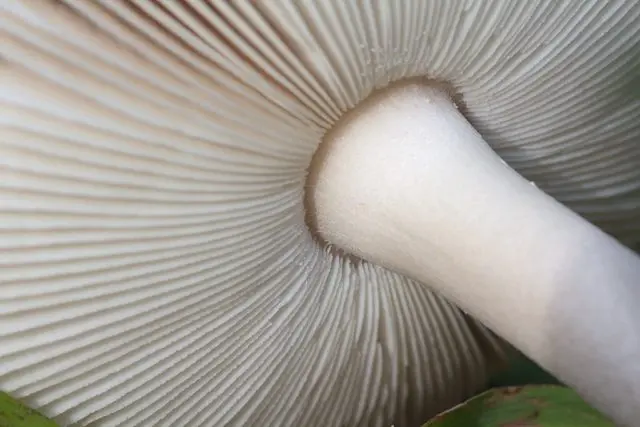
Where and how to grow
It is possible to collect a gray float everywhere: it grows safely in coniferous or deciduous forests, and is found in mixed plantings. The fruiting period is from July to September.
Is the mushroom edible or not?
The float belongs to conditionally edible fruiting bodies. A nondescript appearance and similarity to poisonous representatives are a common reason why mushroom pickers avoid this species.
Before use, it must be boiled. It should be borne in mind that the pulp is very fragile, easily broken, which makes it difficult to cook the mushroom.
Poison twins and their differences
There is a possibility of confusing the fly agaric vaginal with pale grebe. The latter has a brown-olive hat with a silky sheen or white flakes on the surface. As the fungus grows, it changes color to grayish. The main differences between the species are the absence of a pedunculated ring in the twin and the presence of a free sac-like vulva.
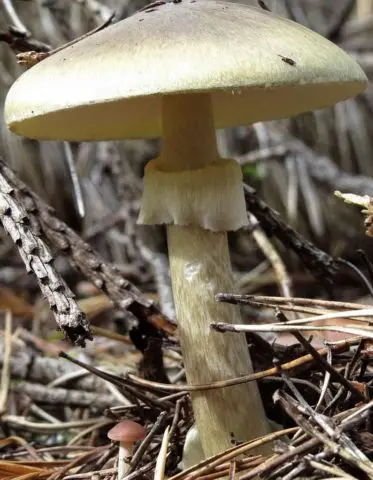
It is necessary to distinguish a gray float from a smelly fly agaric. The latter is characterized by a wide-conical hat, reaching a diameter of 12 cm. It is sticky to the touch, shiny, and white. The pulp of the fruiting body has an unpleasant odor. The double is extremely poisonous, it is forbidden to use it in food.
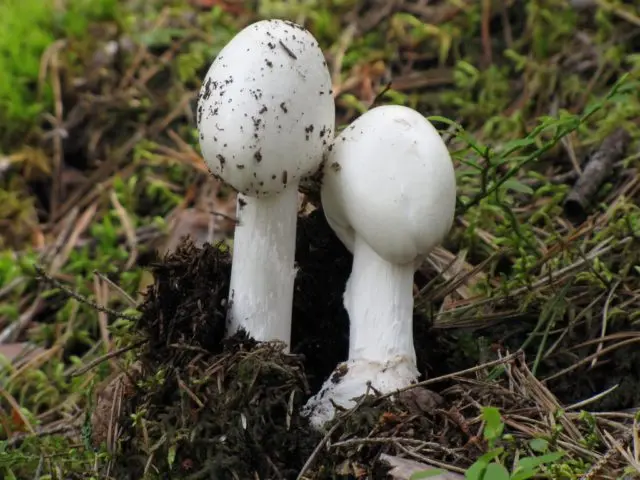
Conclusion
The gray float is a representative of edible fruiting bodies. Despite the unattractive appearance, it is suitable for cooking. The species is ubiquitous, harvested from July to September. You should carefully examine the specimens: the gray float is easy to confuse with the pale grebe and smelly fly agaric.









